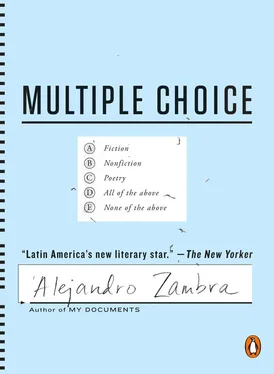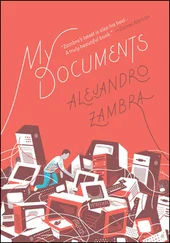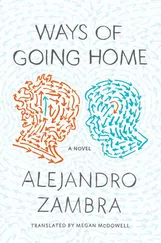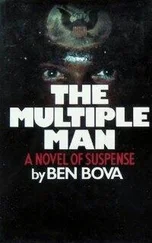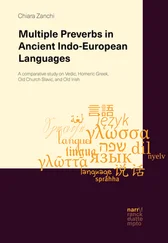Exercises:
75. The general tone of this story is:
A) Melancholic
B) Comic
C) Parodic
D) Sarcastic
E) Nostalgic
76. What is the worst title for this story — the one that would reach the widest possible audience?
A) “Five Thousand and One Nights”
B) “Two Years of Solitude”
C) “Fourteen Years of Solitude”
D) “Two Weddings and No Funeral”
E) “The Labyrinth of Nullity”
77. In your opinion, who is the victim and who is the victimizer, respectively, in this story?
A) The bride / the groom
B) The poet / Maite
C) Chile / Chile
D) Liver / concoction
E) Liquor / beer
78. According to the text, at the beginning of the twenty-first century the nation of Chile was:
A) Conservative in its morality and liberal in its economy.
B) Conservative in its inebriety and artificial in all things holy.
C) Innovative in its levity and literal in its tragedy.
D) Aggressive in its religiosity and conjugal in its wizardry.
E) Exhaustive in its chicanery and indecisive in its celerity.
79. The narrator doesn’t mention the bride’s name because:
A) He wants to protect her. Moreover, he knows that he doesn’t have the right to name her, to expose her. That fear of naming her, in any case, is so 1990s.
B) He wants to protect the woman’s identity because he’s afraid she might sue him.
C) He says he’ll eventually forget the woman’s name, but maybe he’s already forgotten it. Or maybe he’s still in love with her. There’s someone I’m trying so hard to forget. Don’t you want to forget someone too?
D) He’s a misogynist. And a sexist. He’s so vain, he probably thinks the story is about him. Doesn’t he? Doesn’t he?
E) If you can’t be with the one you love, honey, love the one you’re with.
80. According to the text, the divorce law wasn’t passed sooner in Chile because:
A) The Catholic Church lobbied intensely against it, even threatening to excommunicate the congresspeople who supported the bill.
B) There were other priorities in the areas of health, education, and justice.
C) The priority was to indefinitely put off any reform that might put the country’s stability at risk.
D) The priority was to put off indefinitely any reform that might put at risk the interests of corporations and the impunity of those responsible for crimes during the dictatorship, including, of course, Pinochet. In this context, the divorce law was hardly a question of values, and even the right-wing leaders — many of whom “annulled” and remarried — knew it was disgraceful that Chile still hadn’t legalized divorce, but they put the matter off until they needed a powerful distraction that would neutralize the public outcry for justice and radical reforms.
E) A much better system existed: annulment. Because when a couple separates, what we really want is to believe that we were never married, that the person with whom we wanted to share our lives never existed. Nullity was the best way to erase the unerasable.
81. Which of the following famous phrases best reflects the meaning of the text?
A) “Marriage is the chief cause of divorce.” (Groucho Marx)
B) “A marriage is no amusement but a solemn act, and generally a sad one.” (Queen Victoria)
C) “A second marriage is the triumph of hope over experience.” (Samuel Johnson)
D) “Unable to suppress love, the Church wanted at least to disinfect it, and it created marriage.” (Charles Baudelaire)
E) “Marriage is the only adventure open to the cowardly.” (Voltaire)
82. The end of this story is, without a doubt:
I. Sad
II. Heavy
III. Ironic
IV. Abrupt
V. Immoral
VI. Realistic
VII. Funny
VIII. Absurd
IX. Implausible
X. Legalistic
XI. Bad
XII. It’s a happy ending, in its own way.
A) I, II, and IV
B) X
C) All of the above
D) VIII and XI
E) XII
Pay no mind, my son, to what I tell you; pay me no mind at all. I hope that time, in your memory, will mitigate my shouting, my inappropriate remarks, and my stupid jokes. I hope that time will erase almost all of my words, and preserve only the warm, still murmur of love. I hope that very soon they invent a remote control that lets you lower my volume, pause me, fast-forward through unpleasant scenes, or rewind very quickly to happy days. So you can experience whenever you want the freedom of acting without my vigilance, the immense pleasure of trying out a life without me. And you could even decide, for example, if it were necessary, to erase me. I don’t mean erase these words, which in and of themselves are liquid, perishable. Rather, erase me completely, as if I’d never existed.
I know that is impossible.
__________
That’s what life consists of, I’m afraid: erasing and being erased. We were on the verge of erasing you, as you may already know or suspect. We didn’t want to have a child. The thing is, we were still someone’s children then. So much so that the possibility of being parents ourselves seemed terribly distant. We also knew in advance that we were going to separate. For us love was an incident, an accident, a practice — best-case scenano, a high-risk sport.
A little before we found out about the pregnancy, we had considered breaking up. Maybe it will come as a shock to learn that the reason for our fights had been the dilemma of whether or not to have a dog. At first she wanted one, but I thought it was too much responsibility. Then I was the one who wanted it and she argued we were fine as we were, that we had to establish ourselves as a couple before getting a dog. In the end we agreed: we weren’t sure we’d be able to take good care of it, or would have the patience and discipline necessary to take it for walks every day, be sure its dish was always full of food, apply flea repellent every month.
We thought we were too young to take on the responsibility of a dog, but we weren’t really so young: I was twenty-four, same as your mother. At that age, my father already had two children. The younger one, four years old, was me. But in my generation — I know you hate that word — having children was something we only began to think about at thirty or thirty-five, if we ever started thinking about it. Anyway, I don’t know if it’s any consolation, but when we found out about the pregnancy we never considered the possibility of an abortion. I mean, we thought about it, we asked about prices at clandestine clinics, we even went to one of them, but we didn’t seriously consider it. It would be inexact to say that we changed our minds, because, as I’ve said, it was one idea among many, but it wasn’t the primary one.
The day you were born was the happiest day of my life, but I was so nervous I don’t know if happiness is really the best word to describe what I felt. I think it is my obligation to tell you, in spite of the absolute love I have always felt for you, in spite of how much you have brightened my life, and I assume your mother’s as well — I haven’t seen her in around ten years now, but I’m sure that for her as well, you have been a constant source of happiness — in spite of all that, I have to tell you that during the eighteen years you’ve now been alive, I’ve never stopped wondering what my life would have been like if you had never been born.
It’s an overwhelming thought, an exit that leads to the darkest of nights, to the most complete blackness, but also to shadow and sometimes, slowly, toward something like a clearing in the woods. These fantasies are normal, but it’s not so common for parents to confess them. For example, over the years I have thought thousands of times that if you hadn’t been born I would have needed less money, or could have disappeared for weeks on end without worrying about anyone. I could have prolonged my youth for several more years. I could have even killed myself. I mean, the first consequence of your birth was that from then on, I could never kill myself. When some friend of mine who doesn’t have kids talks to me about his little wounds where, after languidly digging around in them, he’s found infinite desperation and anguish, I don’t say what I really think, which is this: Why don’t you just kill yourself?
Читать дальше
